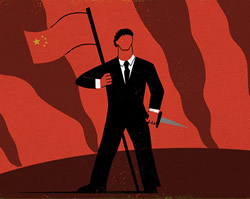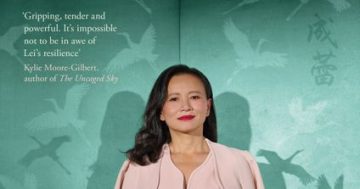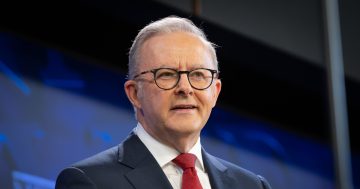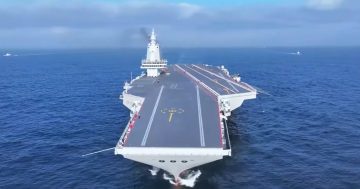Craig Kafura* says Beijing’s aggressive Wolf Warrior diplomacy is playing well domestically, but like Trump’s America First policies, is finding few friends elsewhere.
 What is being described as China’s ‘Wolf Warrior’ diplomacy is making headlines around the world.
What is being described as China’s ‘Wolf Warrior’ diplomacy is making headlines around the world.
Referring to Chinese action blockbusters movies of the same name that highlight agents of special operation forces, Wolf Warrior diplomacy is hitting the right notes at home, but is not playing well with overseas audiences.
In the United States, a poll from the Pew Research Centre finds that Americans are more negative toward China than at any time in Pew’s prior polling.
Two-thirds say they have an unfavourable opinion of China, up from just 47 per cent in 2018; only one in four has a favourable opinion of China.
These growing negative perceptions are matched by concerns about Beijing’s power and influence.
More than six in 10 Americans see China’s power and influence as a major threat, up from 48 per cent in 2018.
Canadians’ favourable attitudes towards China have plummeted in recent years.
According to the latest survey by the Angus Reid Institute, only 14 per cent of Canadians hold a favourable view of China, down from 48 per cent in 2017.
Just nine per cent believe Beijing has been transparent and honest about the COVID-19 situation there.
Australia is another example of Wolf Warrior diplomats setting more fires than they put out.
According to Lowy Institute polling nearly seven in 10 Australians say China has handled the COVID-19 outbreak fairly or very badly.
A similar proportion (68 per cent) say the way China has handled the outbreak has made them less favourable towards China’s system of Government.
Still, there are also diplomatic opportunities for Beijing, as Australians don’t think the combined health and economic crisis facing China will weaken it.
Only a quarter of Australians (27 per cent) predict China will come out of the crisis less powerful than before.
By comparison, few see the US as emerging stronger; a majority (53 per cent) predict it will come out of the crisis less powerful than before.
This could be an opportunity for adroit diplomacy to mollify concerns over China’s handling of the Coronavirus outbreak while reinforcing perceptions of future Chinese strength.
Instead, China’s Ambassador in Australia has been warning that Prime Minister, Scott Morrison’s push for an independent inquiry into the Coronavirus outbreak is “dangerous”.
The Ambassador said the “Chinese public is frustrated, dismayed, and disappointed with what Australia is doing now”.
Soon after, China banned a substantial portion of Australia’s beef exports and imposed tariffs of more than 80 per cent on Australian barley, putting in danger one of the country’s top export markets for agricultural goods.
Given the array of challenges facing China, the timing couldn’t be worse for Beijing’s diplomats to abandon diplomacy.
In addition to demands for an inquiry into the initial outbreak of COVID-19, Chinese officials are facing multinational criticism over the recent imposition of the National Security Law in Hong Kong.
They face new restrictions on Huawei 5G technologies, clashes between Indian and Chinese troops along their disputed border, as well as new push-backs on its claims in the South China Sea.
Juggling the many problems facing China at this moment requires nothing short of adroit diplomatic engagement.
Yet rather than offering an alternative to the current US Administration, the Wolf Warriors seem dead-set on emulating aspects of it.
The Trump Administration’s America First agenda is not entirely dissimilar to the apparent aims of the Wolf Warriors.
Neither seems likely to produce the international successes they seek.
*Craig Kafura is the Assistant Director for Public Opinion and Foreign Policy at the Chicago Council on Global Affairs, and is a Security Fellow with the Truman National Security Project. He can be contacted on Twitter @ckafura.
A fuller version of this article appeared on the PacNet Commentaries website.











